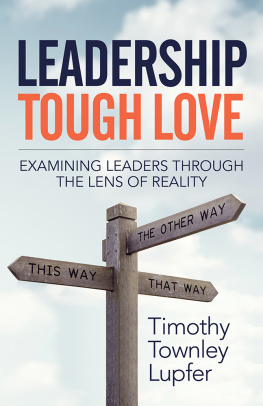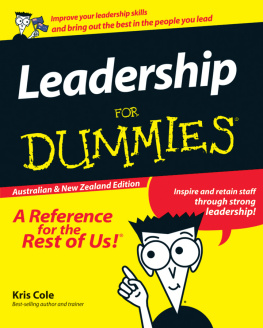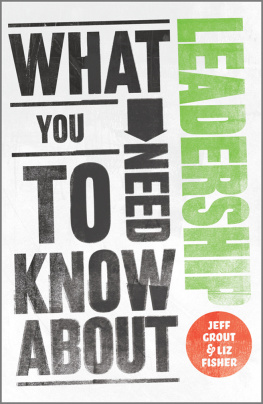Copyright 2019 by Timothy Lupfer
All rights reserved.
Printed in the United States of America.
No part of this publication may be reproduced or distributed in any form or by any means without the prior permission of the publisher. Requests for permission should be directed to , or mailed to Permissions, Indie Books International, 2424 Vista Way, Suite 316, Oceanside, CA 92054.
The views and opinions in this book are those of the author at the time of writing this book, and do not reflect the opinions of Indie Books International or its editors.
Neither the publisher nor the author is engaged in rendering legal, tax, strategic, military, tax, or other professional services through this book. The information is for business education purposes only. If expert assistance is required, the services of appropriate professionals should be sought. The publisher and the author shall have neither liability nor responsibility to any person or entity with respect to any loss or damage caused directly or indirectly by the information in this publication.
ISBN-10: 1-947480-70-7
ISBN-13: 978-1-947480-70-4
Library of Congress Control Number: 2019911938
Designed by Joni McPherson, mcphersongraphics.com
INDIE BOOKS INTERNATIONAL, LLC
2424 VISTA WAY, SUITE 316
OCEANSIDE, CA 92054
www.indiebooksintl.com
CONTENTS
PREFACE
I had just sat down to relax and catch up on magazine articles. I selected an article in a prominent business magazine with a cover story on leadership; the experience turned out to be anything but relaxing.
As I was reading, I wanted to let out a primordial scream. There, in this respected American business publication, was a list of todays top leaders. The article went so far as to call the list the worlds greatest leaders. Of course, it contained the usual suspectsmostly high-ranking business executives and political figures. As I scanned the list, I wondered. Certainly, many of these high-level people were leaders in their current roles, because they were in positions of responsibility in large organizations with many employees. But just because they occupied the position, did this mean they were good leaders, let alone the worlds best?
The article stated we can find leaders everywhere within organizations, but its list focused only on well-known people in high positions.
Are we so enamored with status that we assume people in high positions in large organizations are automatically the best leaders? It was sobering to recall that this publication (and many others) had lauded the disgraced CEOs of both Enron and Tyco as great leaders not too many years prior.
This list of the worlds greatest leaders also contained sports stars and pop stars. But were those people really leaders? They are extremely talented specialists: people who possess extraordinary individual talents. Outstanding individual skill, however, does not automatically transfer into effective leadership, as the record in sports demonstrates. In this domain, the best individual performer frequently does not become a successful coach or manager.
The magazine went on to laud the lists sports stars and pop stars for their charity work. Without question, such efforts are worthy of praise. But had the stars in question simply lent their name to a cause and let others do the heavy lifting of leadership within the charity? There is nothing wrong with doing that for a good cause, but if this is the case, was this really an example of leadership of the highest order?
The inclusion of one pop star put me over the edge. I began to think, Wait a minute. Shes really only leading a small group of peopleher entourage. She may be successful at affecting them to accomplish their common goals (and in that way, she may be an effective leader). Or she may be a terrible leader, turning over people like hamburgers at a fast food joint, succeeding only through the momentum of her individual talent and the revenue it produces. Yes, she has an amazing skill, and she is a celebrity. She has millions of people following her on Twitter. But thats not necessarily leading.
While I would hope that these celebrities really are effective leaders, I couldnt tell if they were or not. For one thing, this article didnt precisely define what leadership is, other than offering a timid list of seemingly unrelated attributes. As I pored over the so-called leaders named in this article, I began to realize that it was not really a list of leaders; it was merely a list of famous peoplefamous for occupying a particular position or having an outstanding individual talent.
The article reflected what I believe is a common error in our collective thinking today. We equate having broad influence with the ability to lead. Influence is one of the key tools for a leader, but other tools must also be in the leadership mix. We try to influence people all the time in all types of relationships: spouses, the boss, a volunteer group. That is not the same as leading, which is much narrower than the broader concept of influence. Leading occurs when you have designated followerspeople whose actions you must affect to achieve the goals of the organization (the same organization that has designated you to lead those people). Leadership is a role, and not everyone performs in this specific role, including many famous people.
Leadership Tough Love: A Preview
The purpose of this book is to bring us back to what I believe leadership is:
Leadership is the role of affecting followers to achieve the organizational goals.
Leadership is the role of affecting followers to achieve the organizational goals.
In discussing and applying this definition, I will introduce ideas and observations that will run counter to much current thinking on leadership, which is why I have titled my book Leadership Tough Love. Today I see too much sloppy thinking about leadership, too much happy talk, such as everyone is a leader, or real leaders dont need authority. To counter this, I propose we take a sober look at what leaders are and what they aspire to do. For us to identify, develop, and celebrate leadership, I wish to inject some tough love into the conversation. Each chapter in this book addresses a different, realistic way to look at leadership; each chapter contains blunt, even heretical thinking that runs counter to many of todays approaches. These thoughts may appear contrarian, but I believe they are a necessary corrective for current muddled thinking.
In the , I open with the harsh reality that hierarchy and authority are essential for leadership. I examine why leaders will always, by definition, operate within some form of hierarchy, even within the smallest group, because leadership is a distinct role, defined by whatever group we are in. From the family unit to huge organizations, we live within structures, or hierarchies. And we have hierarchies for two important reasons: first, without hierarchies, we cannot achieve anything on a large scale. We create hierarchical structures to direct our efforts and to manage our resources. Second, hierarchies, whether formally structured (organizational) or traditional (families and social groups), bestow authority, either formally or informally, designating who will lead.
Please note, leaders seldom emerge naturally from the group, due to the tyranny of time; hierarchy or structure are almost always involved in designating a leaders role. Authority should never be considered a dirty word; on the contrary, it is one of the essential tools of leadership. Authority is the











